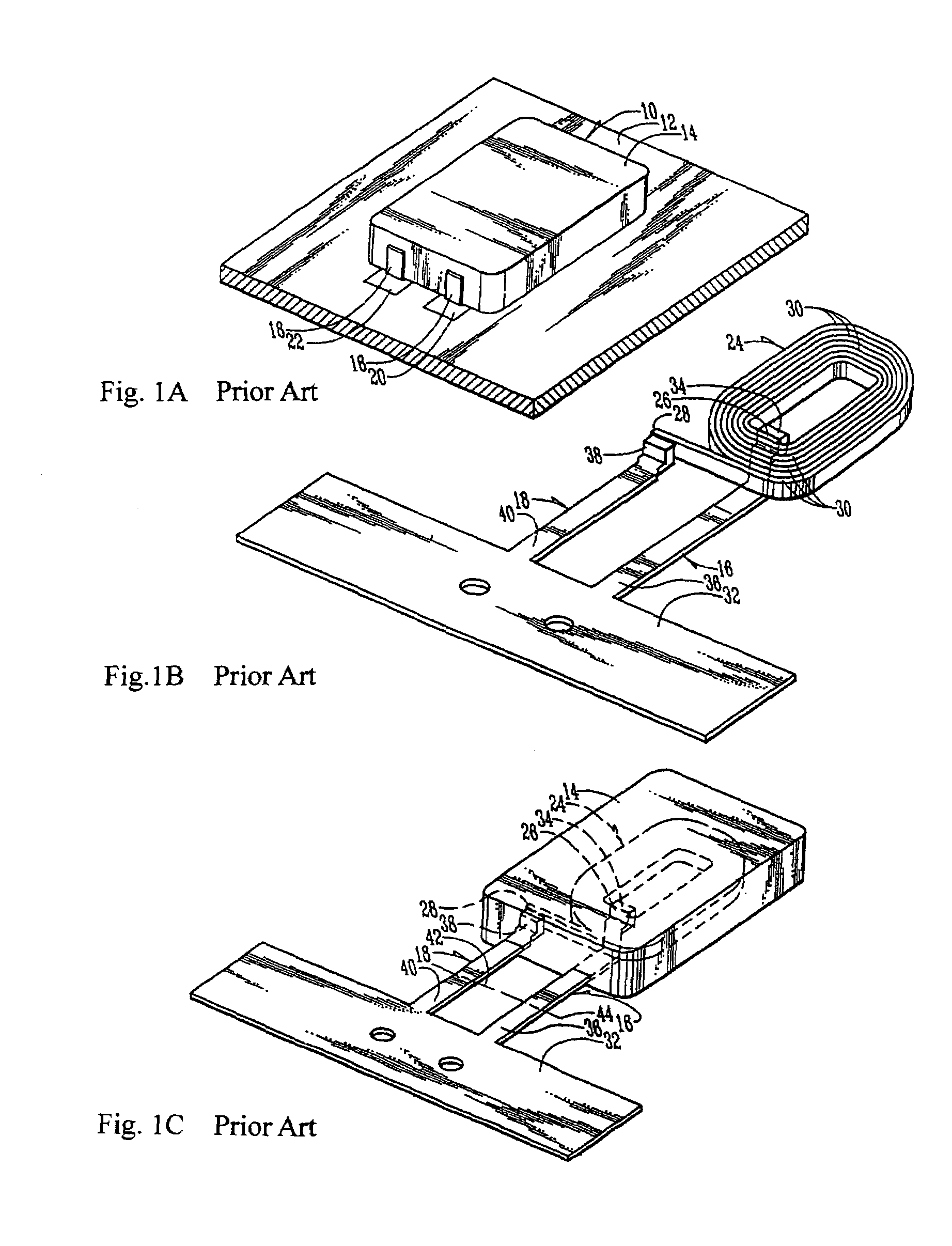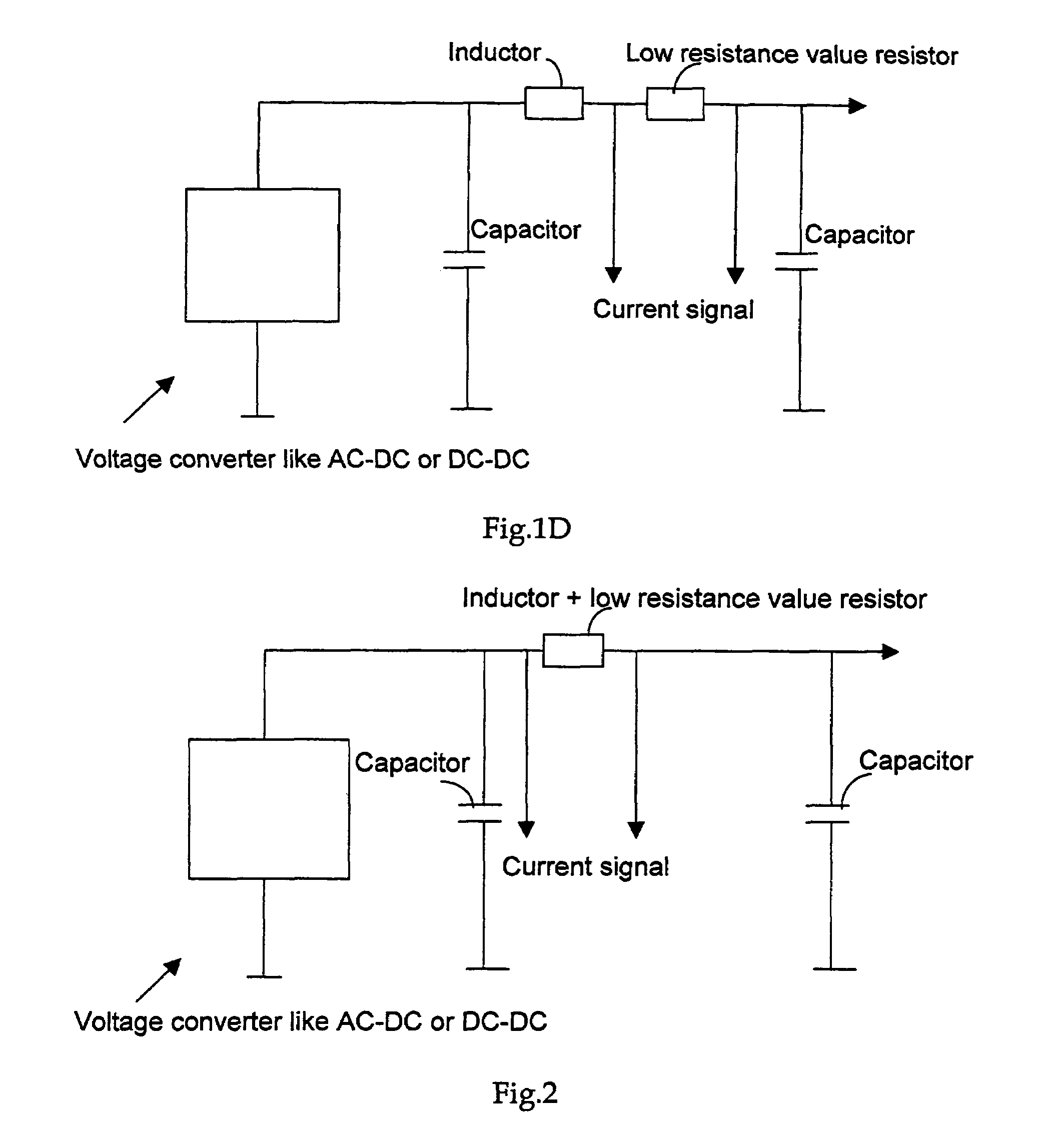Current measurement using inductor coil with compact configuration and low TCR alloys
a technology of inductor coils and compact configurations, applied in the direction of transformers/inductance details, inductances with magnetic cores, etc., can solve the problems of insufficient compact form factor of coils manufactured with current technology, complicated manufacturing processes, and inability to meet the requirements of modern electronic devices, etc., to achieve the effect of high degree of current measurement accuracy
- Summary
- Abstract
- Description
- Claims
- Application Information
AI Technical Summary
Benefits of technology
Problems solved by technology
Method used
Image
Examples
Embodiment Construction
[0025]Referring to FIG. 2 for an improved circuit diagram with a new inductive coil 100 composed of alloys of low temperature coefficients of resistance. A separate resistor as that shown in FIG. 1D is no longer required. A current measurement can be directly performed over the inductive coil 100. An alloy of low TCR may be selected from a group of alloys that may include Cu—Mn—Ni, Cu—Ni, Ni—Cr, and Fe—Cr alloys. The table below shows some examples of alloys with achievable low TCR for each of these alloys.
[0026]
specificresistance valueTCRMaterial systemmicro ohm-mppm / degCu—Mn—Ni system0.44±10Cu—Ni system0.49±200.31800.154200.16500.43700Ni—Cr system1.082001.12260Fe—Cr system1.4280
[0027]Referring to FIGS. 2A to 2D for a series of perspective views to illustrate the manufacturing processes of this invention. In FIG. 2A, a conductive flat wire 100 that includes a first terminal extension 105-1 extended from a first end of the flat wire 100 connected to a first terminal plate. The flat ...
PUM
| Property | Measurement | Unit |
|---|---|---|
| diameter | aaaaa | aaaaa |
| temperature coefficient of resistance | aaaaa | aaaaa |
| diameter | aaaaa | aaaaa |
Abstract
Description
Claims
Application Information
 Login to View More
Login to View More - R&D
- Intellectual Property
- Life Sciences
- Materials
- Tech Scout
- Unparalleled Data Quality
- Higher Quality Content
- 60% Fewer Hallucinations
Browse by: Latest US Patents, China's latest patents, Technical Efficacy Thesaurus, Application Domain, Technology Topic, Popular Technical Reports.
© 2025 PatSnap. All rights reserved.Legal|Privacy policy|Modern Slavery Act Transparency Statement|Sitemap|About US| Contact US: help@patsnap.com



